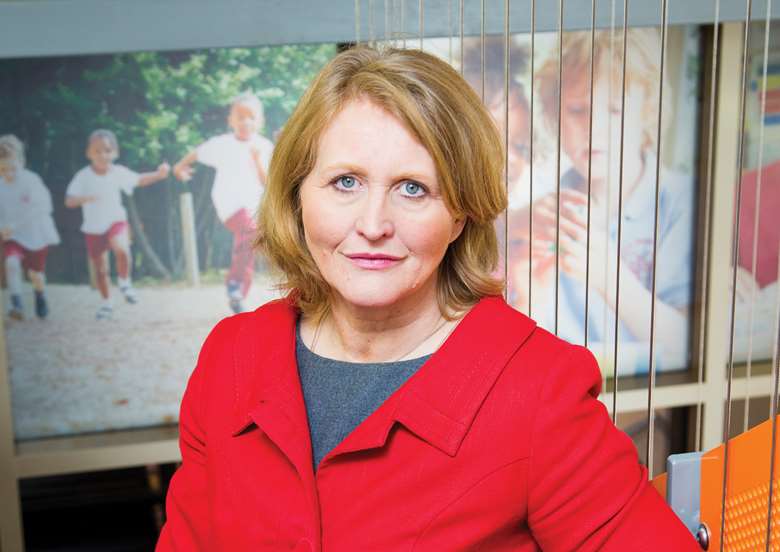Two million children 'at serious risk', children's commissioner finds
Neil Puffett
Tuesday, July 3, 2018
Around one in six of all children in England - a total of 2.1 million - are at "serious risk" due to complex family problems, with the majority of them "invisible" to the state and "let down" by the system, a study by the children's commissioner for England has found.

A report looking into the scale of childhood vulnerability found that of the 2.1 million at serious risk because their parents have serious mental health or substance abuse problems, they live in a home affected by domestic violence, they are suffering from material deprivation, or have to care for a family member.
Of these many are known to statutory services or receiving support - 310,000 children are classified as "children in need", 410,000 are in families that are being, or have previously been, supported by the Troubled Families programme, and 30,000 are the registered with their council as a young carer.
However, due to overlaps, such as many of the children receiving support through the Troubled Families programme also being children in need, the report calculates that the total number of children who are known to receive some kind of support actually comes to 570,000.
The report said that this leaves 1.6 million children, 76 per cent of the total, who are "invisible", living in vulnerable situations but receiving no known support or help from the system.
Anne Longfield, the children's commissioner for England, said vulnerable children are "being let down by a system that doesn't recognise or support them", and are too often left to fend for themselves until crisis point is reached.
"Not every vulnerable child needs state intervention, but this research gives us - in stark detail - the scale of need and the challenges ahead," she said.
"Meeting them will not be easy or cost-free. It will require additional resources, effectively targeted, so that we move from a system that marginalises vulnerable children to one which helps them.
"Supporting vulnerable children should be the biggest social justice challenge of our time. Every day we see the huge pressures on the family courts, schools and the care systems of failing to take long-term action.
"The cost to the state is ultimately greater than it should be, and the cost to those vulnerable children missing out on support can last a lifetime. We get the society we choose - and at the moment we are choosing to gamble with the futures of hundreds of thousands of children."
Roy Perry, vice chairman of the Local Government Association's children and young people board, described the report as "the latest in a series of stark warnings about the huge number of children and families in need of help and support", adding that it highlights the "immense challenge" facing councils and their partners.
"We want the government to heed these increasingly urgent warnings and accept the critical need for properly funded children's services, which face a funding gap of £3bn by 2025 just to keep services running at current levels," he said.
"We have long warned of the rising demand councils face, with an average of more than 270 children taken into care or placed on a child protection plan every single day to keep them safe from harm.
"This is becoming unsustainable, with many areas struggling to cope. This report provides further evidence that children's services are being pushed to the brink, and desperately need new resources if they are to provide the essential support that our children and young people rely on and deserve."
Barnardo's chief executive, Javed Khan said the report "brings home" the impact of domestic abuse on children, with an estimated 825,000 affected.
"We know from our specialist services that they are victims and not just witnesses, even if abuse and violence isn't aimed directly at them," he said.
"Growing up in families where there is domestic abuse or violence can have a serious emotional impact, causing adverse childhood experiences, which can stay with children for life.
"Research in our services shows many children who have been sexually exploited, or who show harmful sexual behaviour live in households where there is abuse or violence. They are also more likely to be in abusive relationships themselves later in life.
"The government needs to put children at the centre of its strategy in its Domestic Violence and Abuse Bill and ensure they receive specialist support early to overcome trauma and go on to lead happy, healthy lives."
The 2.1 million children estimated in the report to be growing up in families with these complex needs (with some falling into more than one category) includes:
• 890,000 children with parents suffering serious mental health problems
• 825,000 children living in homes with domestic violence
• 470,000 children whose parents use substances problematically
• 470,000 children living in material deprivation
• 170,000 children who care for their parents or siblings
• 100,000 children who are living in a family with a "toxic trio" - mental health problems, domestic violence and alcohol and/or substance abuse




